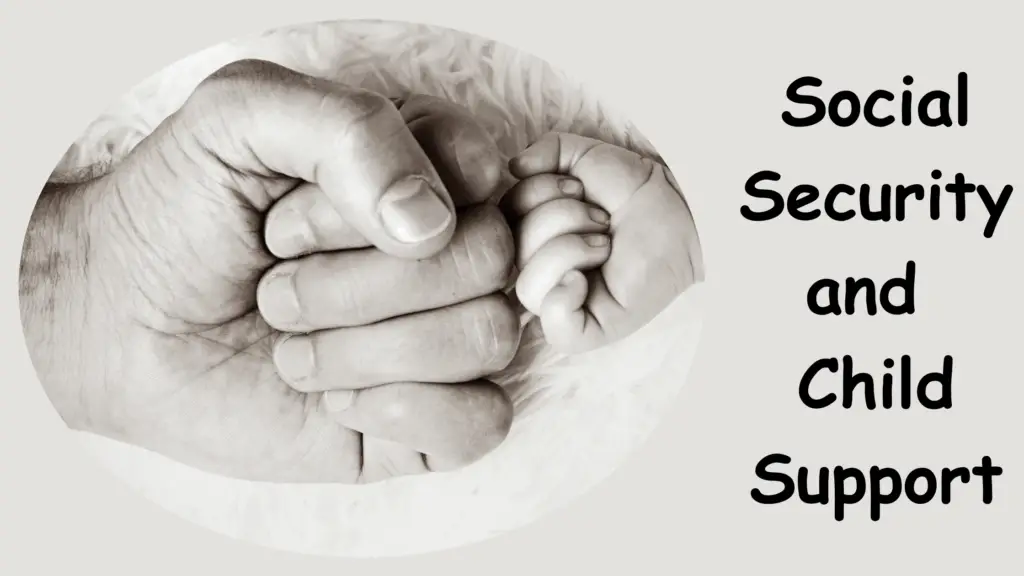Navigating the intricacies of both Social Security benefits and child support can present a formidable challenge, particularly when contemplating their potential effects on those who rely on them. Within this piece of article, we shall explore the query: Does social security pay back child support after death? Our examination will encompass the subtle aspects of Social Security benefits, survivor’s benefits, responsibilities related to child support, and the diverse legal considerations. Through this, we aim to provide you with a comprehensive and profound comprehension of this scenario.
Understanding Social Security Benefits
Social Security benefits constitute a fundamental pillar of economic assistance for qualified individuals and their families within the United States. Furnished by the federal government, these benefits establish a safety net aimed at aiding retirees, persons with disabilities, and surviving family members of deceased workers. Within this structure, diverse categories of Social Security benefits exist, each tailored to address particular situations.
Types of Social Security Benefits
- Retirement Benefits: These benefits are extended to individuals who have reached a specific age and have earned the required number of work credits. Upon retirement, eligible individuals receive a regular stream of income from the Social Security Administration, helping them sustain their quality of life in their golden years.
- Disability Benefits: When an individual is unable to work due to a qualifying medical condition, they may be eligible for disability benefits. This crucial form of financial assistance supports individuals who find themselves unable to maintain employment due to health-related constraints.
- Survivor’s Benefits: The focal point of this article, survivor’s benefits, provide economic aid to family members left behind after the passing of a worker eligible for Social Security benefits. These benefits acknowledge the financial hardships that can arise when the primary breadwinner of a family is no longer present.
Child Support and Social Security
In contrast, child support stands as a legal duty that commonly emerges during instances of divorce or separation. Within these contexts, a court stipulates that one parent must provide financial assistance to the custodial parent in order to support the upbringing and well-being of their mutual children. It’s crucial to note that child support and Social Security benefits constitute separate aspects within the realms of legality and finance.
A prevailing misconception revolves around the idea that Social Security benefits can replace the need for child support payments. This notion is incorrect. Child support payments and Social Security benefits address distinct necessities and are guided by individual sets of laws and guidelines.

Survivor’s Benefits and Child Support
Survivor benefits, a crucial element of the Social Security system, bear the responsibility of offering crucial financial assistance to family members who survive the passing of a worker eligible for Social Security benefits. When a parent who qualifies for Social Security passes away, specific family members, including dependent children, may qualify for receiving survivor benefits.
A common query that arises is whether child support payments persist even after the demise of the parent legally bound to provide those payments- does social security pay back child support after death? As a general rule, child support responsibilities do not automatically terminate when the parent responsible for the payments passes away. Nevertheless, the presence of survivor benefits for dependent children can wield a significant impact on the broader financial scenario.
The realm of survivor benefits introduces a distinctive dynamic to the equation of child support. Crafted to furnish financial stability to surviving family members, these benefits could potentially exert influence on calculations related to child support. Since survivor benefits contribute to the financial upkeep of the children, adjustments to child support obligations might be considered necessary to factor in this supplementary income.
So, does social security pay back child support after death? Yes, Social Security benefits can be used to pay back child support. In the United States, Social Security benefits can be used to pay back child support that is owed by the deceased individual. When a person receiving Social Security benefits passes away and leaves behind unpaid child support, the government has the authority to use a portion of the deceased individual’s Social Security benefits to satisfy the owed child support.
Impact of Child Support Arrears
Child support arrears, a commonly encountered term in discussions about child support, pertain to the amassed, unpaid, or overdue payments intended for supporting a child. These arrears arise when a parent neglects their responsibility to fulfill timely child support commitments. This naturally raises the question of whether it’s feasible to recover child support arrears from the Social Security benefits of a deceased parent.
In numerous scenarios, it is indeed possible to recuperate child support arrears from the Social Security benefits of a parent who has passed away. However, it’s imperative to comprehend that this process of retrieval is subject to intricate interactions between legal statutes and state-specific regulations. The potential to collect arrears from Social Security benefits is substantially impacted by these variables.
The retrieval of child support arrears from Social Security benefits hinges on several considerations. The sum of outstanding arrears, the type of Social Security benefits being received, and the legal constraints dictated by the state all converge to establish the viability of such collection efforts. It’s of utmost importance to enlist the services of legal experts specializing in family law to obtain a comprehensive grasp of how these variables relate to your individual circumstances.
Read About: Judges View on Parental Alienation
Legal and State-Specific Variations
Child support regulations in the United States lack uniformity. They exhibit significant variations from state to state. It is crucial to acquaint yourself with the legal framework in your specific jurisdiction. State-specific statutes wield substantial influence over the interplay between child support and Social Security benefits.
The formulation, alteration, and enforcement of child support mandates are primarily dictated by state legislations. Some states may prioritize child support overdue payments above other claims against a deceased parent’s assets. Conversely, certain states might impose constraints on the proportion of overdue payments retrievable from Social Security benefits.
Due to the intricate nature of child support regulations and their intersection with Social Security benefits, seeking counsel from experts well-versed in family law is highly recommended. These professionals can offer tailored advice according to your unique circumstances and the pertinent laws within your state.
Communication and Documentation
When navigating matters involving child support and Social Security, clear communication and meticulous documentation are indispensable. Maintaining accurate records of child support payments, court orders, and relevant correspondence can significantly impact the outcome of legal proceedings or benefit claims.
Effective documentation plays a multifaceted role. On one hand, it serves as evidence of your compliance with child support obligations, showcasing your commitment to fulfilling your responsibilities. On the other, it becomes a cornerstone in situations where child support arrears need to be collected from Social Security benefits.
To ensure that you are adhering to the correct legal procedures and maximizing your entitlements, considering collaboration with an experienced attorney who specializes in family law is prudent. These legal professionals possess the expertise necessary to guide you through the requisite steps and assist you in constructing a robust case based on your documented history of child support payments.
Conclusion
While child support payments do not undergo automatic cessation following the demise of a parent, the availability of survivor’s benefits can exert a profound influence on the overall financial landscape. The collection of child support arrears from a deceased parent’s Social Security benefits is frequently feasible, albeit subject to a complex web of state laws and other variables. To navigate these complexities successfully, it is prudent to seek guidance from legal professionals specializing in family law and from Social Security experts.







